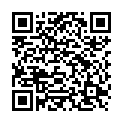|
|
|
| Module code: MAMS-240 |
|
|
2PA+2S (4 hours per week) |
|
6 |
| Semester: 2 |
| Mandatory course: yes |
Language of instruction:
German/English |
Assessment:
Term paper with presentation (Can be repeated annually)
[updated 20.11.2019]
|
MAMS-240 (P420-0006) Marketing Science, Master, ASPO 01.04.2016
, semester 2, mandatory course
MAMSc-240 (P420-0565) Marketing Science, Master, SO 01.04.2025
, semester 2, mandatory course
|
60 class hours (= 45 clock hours) over a 15-week period.
The total student study time is 180 hours (equivalent to 6 ECTS credits).
There are therefore 135 hours available for class preparation and follow-up work and exam preparation.
|
Recommended prerequisites (modules):
MAMS-110 Market Research and Multivariate Analysis
[updated 11.10.2023]
|
Recommended as prerequisite for:
MAMS-320 Master´s Colloquium
[updated 25.01.2016]
|
Module coordinator:
Prof. Dr. Tatjana König |
Lecturer:
Prof. Dr. Tatjana König
N.N.
[updated 11.10.2023]
|
Learning outcomes:
After successfully completing this module, students will be able to, _
_ independently research and critically examine English language scientific literature on a current marketing topic.
_
roughly understand and summarize research questions, procedures and results, in particular journal articles from the field of marketing.
_
set their own focus or question regarding a given topic and work on it in a structured manner within the framework of a term paper in compliance with scientific standards.
_
be able to design resp. carry out and evaluate empirical studies within a group,
_ present their findings in the form of a presentation within a given timeframe and discuss them critically with their fellow students.
In-depth aspects of a comprehensive marketing topic using an empirical database
[updated 20.11.2019]
|
Module content:
Examples of such topics:
_ Trade marketing
_ Generation marketing
_ Social media
_ Event management and sponsoring
_ Sport marketing
[updated 20.11.2019]
|
Teaching methods/Media:
Seminar with data evaluation alone or in a group
[updated 20.11.2019]
|
Recommended or required reading:
Intensive literature research is an important part of the seminar. Introductory literature is usually provided.
Methodically-oriented literature:
- Backhaus, K., Erichson, B., Plinke, W., Weiber, R. (latest edition): Multivariate Analysemethoden _ Eine anwendungsorientierte Einführung, Hamburg.
-
Hair, J.F. (Jr.), Black, W., C., Babin, B.J., Anderson, R.E., Tatham, R.L. (latest edition): Multivariate Data Analysis, Upper Sadle River, New Jersey.
-
Homburg, Ch., Giering, A. (1996): Konzeptualisierung und Operationalisierung komplexer Konstrukte _ in Leitfaden für die Marketingforschung, Marketing _ Zeitschrift für Forschung und Praxis, 18 (1), 5-24.
-
Herrmann, A., Homburg, Ch., Klarmann, M. (Hrsg.): Handbuch Marktforschung _Methoden, Anwendungen, Praxisbeispiele, latest edition, Wiesbaden.
-
Kuß, A. (latest edition): Marketing-Theorie, Wiesbaden.
- Rudolf, M., Müller, J. (latest edition): Multivariate Verfahren, Göttingen u.a.
[updated 20.11.2019]
|


